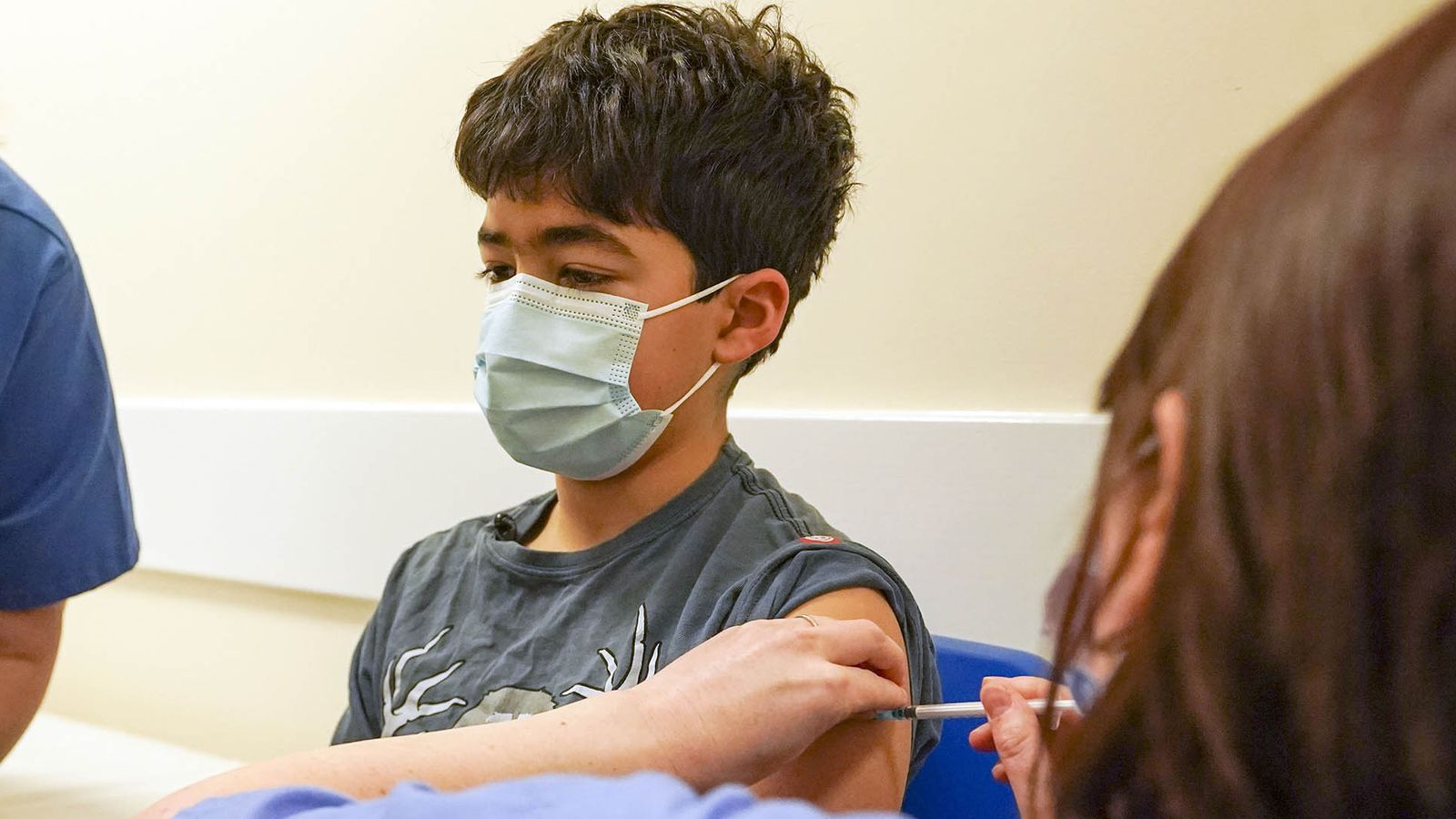So, why now?
Two months ago, when Omicron was racing towards a peak, and the threat from the variant was considered to be severe, the government’s vaccines advisers decided healthy young children should not have the jab.
Now, when cases are falling fast and Omicron’s bark is known to have been worse than its bite, they’ve changed their mind.
It doesn’t seem at first to make sense, particularly when many other countries have been vaccinating young children for several weeks.
During that lost time, Omicron has swept through primary schools.
Man tests positive 78 times in 14 months – live COVID updates
Data from the Office for National Statistics shows that in mid-January almost one in every seven young children had COVID.
Coachella will not be asking ticket-holders for 2022 event to be vaccinated, wear masks or test negative for COVID
COVID-19: Ending free testing a mistake and will make pandemic worse, Sir Keir Starmer says
COVID-19: Children aged 5-11 in Scotland to be offered vaccine, Nicola Sturgeon confirms
Of course, natural infection brings rapid immunity. But the rampaging virus has been disruptive for schools and frustrating for parents.
So why the change of heart by the Joint Committee on Vaccination and Immunisation?
Why now do the experts recommend all young children are vaccinated, when before it was just those with clinical risk factors?
JCVI waited on more data before giving green light
As always with medicines, it comes down to risk and benefit.
Older children, particularly boys, have a very rare risk of a heart problem called myocarditis, which is why the JCVI agonised over the rollout to 12 to 15-year-olds.
The delay in making a decision has meant there is now more data on the safety of the jab in younger children.
The US, Canada, Israel and Ireland have immunised millions of under-11s – and there is no evidence of any problems.
What about benefit?
The JCVI isn’t sure vaccination reduces the impact on education.
Yes, children are less likely to be off sick if they’ve had the jab.
But most young children only have mild disease or even no symptoms at all – they only miss school because of isolation rules, which are likely to be dropped soon.
And against that there is a chance that some children get a headache and temperature after the jab and miss a day anyway.
Ultimately what swung it for the JCVI was the really small risk of hospitalisation in young children.
Of all age groups, 5 to 11-year-olds have the lowest risk of serious disease. But if even a tiny number avoid serious disease and perhaps death, then giving a safe vaccine will have been worthwhile, they argue.
Relief for parents but many will have to wait
The NHS says many parents will want time to consider the evidence before consenting to vaccination, so the rollout won’t be rushed.
Subscribe to the Daily podcast on Apple Podcasts, Google Podcasts, Spotify, Spreaker
Even if parents decide to go-ahead it’s likely they’ll have to wait for their children to get it.
The NHS currently recommends children aren’t vaccinated within 12 weeks of testing positive. And Omicron has been so common that many children won’t be eligible for the jab until well after Easter.






















